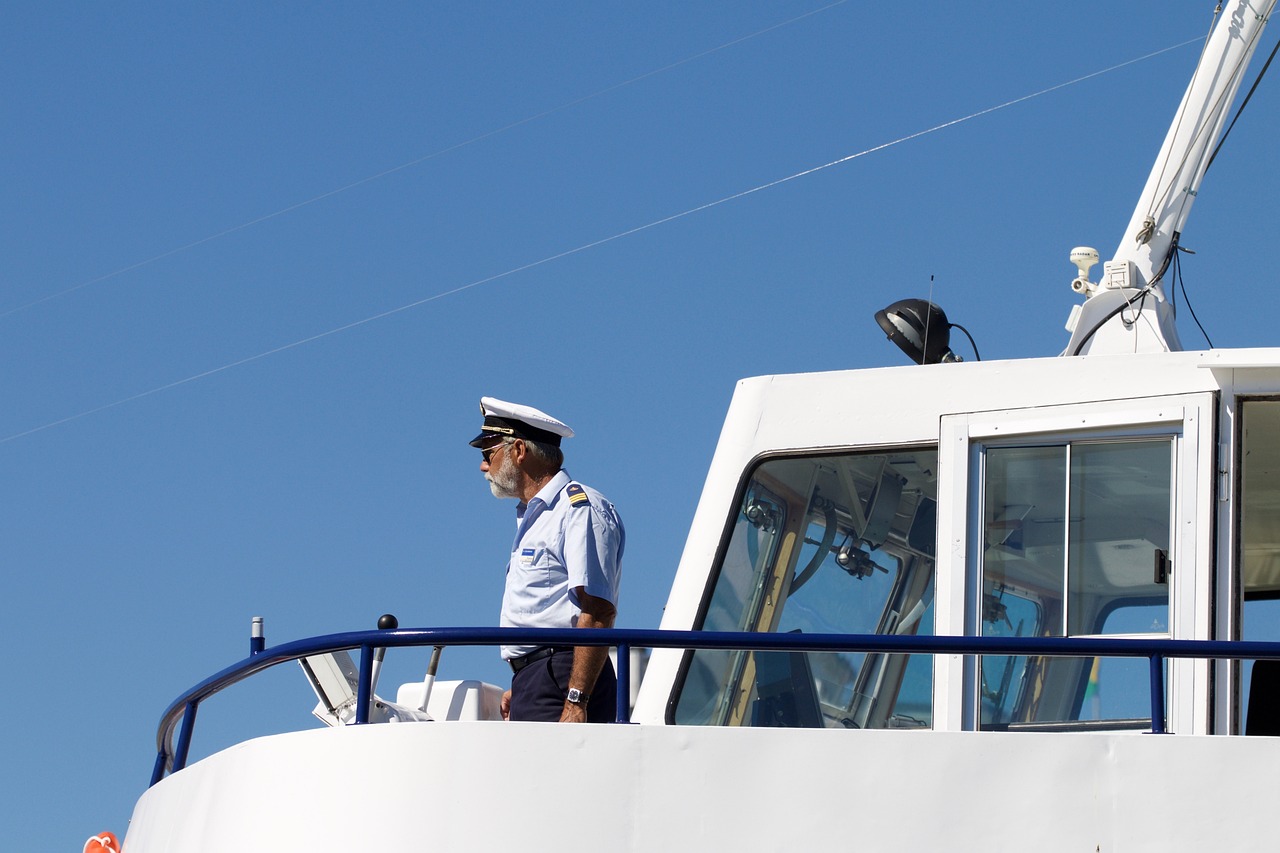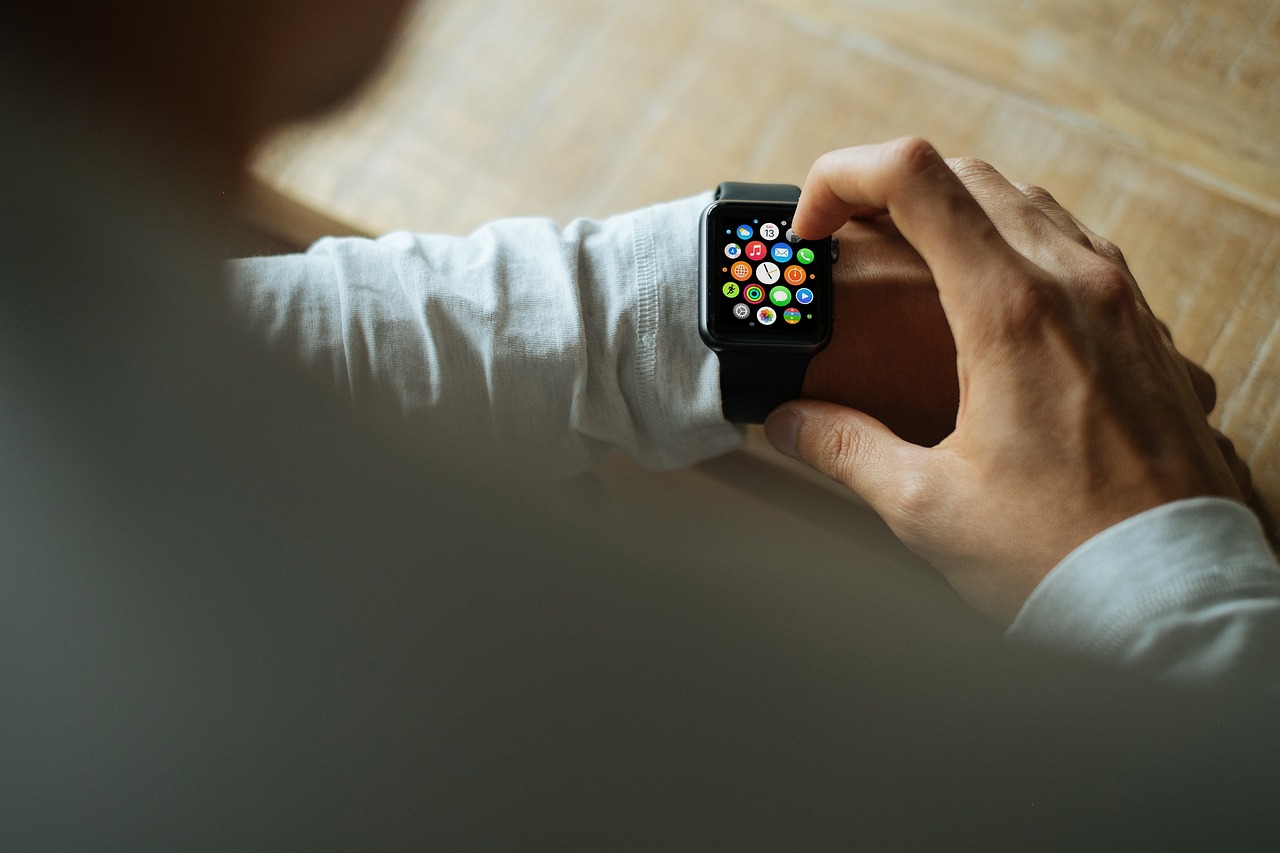Article
- Title: Navigating Stress at Sea: How Modern Technology Supports Seafarers' Mental Health and Safety
- Author: Daniel Zhang
- Date: 24 June, 2024
- Keywords: Seafarers, Safety, Mental health
- DOI: 10.25542/dkng-e7r
- Cite this article
Summary
Daniel Zhang sheds light on the importance of addressing stress for the well-being of seafarers and discusses how technology can play a part in stress detection and management.
Navigating Stress at Sea: How Modern Technology Supports Seafarers' Mental Health and Safety
by Daniel Zhang
Daniel Zhang is Director at the Centre of Excellence in Maritime Safety. The views and opinions expressed in this article are those of the author and do not necessarily reflect the views or positions of the university.
Introduction
The life of a seafarer, often romanticised in literature and film, is in reality a challenging and high-stress occupation. Seafarers endure unique challenges, including prolonged periods away from family, harsh working conditions, and the inherent dangers of maritime work, all of which significantly contribute to their stress levels [1]. Addressing mental health and ensuring safety at sea are critical. While training in essential skills provides a foundational approach to stress reduction, there's more that can be done [2]. Recent developments in simple yet effective technologies, like those found in smartwatches, could make a difference.
The Impact of Stress on Seafarers and Maritime Safety
The impact of stress on seafarers is multifaceted, affecting their cognitive functions, decision-making abilities, and overall health. Literature indicates that people under extremely high stress tend to have more human errors and high levels of stress can lead to fatigue, which in turn increases the risk of accidents at sea. The International Maritime Organisation (IMO) recognises stress management as a critical component of maritime safety. Moreover, failure to address stress appropriately can have significant financial implications. For instance, the grounding of the cargo ship MV Rena on New Zealand’s Astrolabe Reef in 2011 resulted from navigational errors, with investigations highlighting crew fatigue and stress as contributing factors. The accident led to substantial environmental damage, requiring a clean-up operation costing hundreds of millions of dollars and significant legal consequences. Similarly, in 2012, the Costa Concordia cruise ship struck a rock and capsized off the Italian coast due to poor decision-making under stress by the captain. This incident not only resulted in tragic loss of life but also prompted a salvage operation costing over €1.5 billion. Beyond the operational and financial impacts, addressing stress is crucial for the well-being of seafarers. Chronic stress has been proven to significantly impair the mental health and physical health of people, leading to conditions such as depression, anxiety, and cardiovascular diseases. Effective stress detection and management not only enhance safety but also improve the overall health and quality of life of seafarers, making them healthier, more alert, and effective in their duties.
The Role of Technology in Stress Detection
Interestingly, devices that monitor heart rate such as smartwatches and collect brain wave such as EEG cap may help seafarers detect their stress or alert supervisors when there is a chronic stress issue. While brain wave analysis can offer insights into a person's stress levels, smartwatches are easier to use and more practical for daily monitoring. Studies have shown that these physiological signals can effectively recognise stress patterns [3, 4]. For instance, by analysing EEG and blood volume pulse (PPG), researchers have identified indicators that may reflect the body’s response to stress [5]. The use of wearable devices, like smartwatches, is becoming a practical solution for monitoring mental stress in real-life situations [6]. These findings have potential applications in the maritime industry, allowing for detection of both instantaneous and chronic stress in seafarers. While instantaneous stress can often be managed independently by seafarers, the chronic stress may require systematic intervention by supervisors to address underlying issues effectively. Wearable devices can be configured to alert supervisors when predefined criteria for chronic stress are met, such as sustained high levels of stress detected from heart rate or EEG data. This system should be designed with strict privacy safeguards and clear, objective thresholds for intervention, ensuring that monitoring is both ethical and effective. In addition, these technologies are not just limited to detecting stress. They can also identify varied emotional states, contributing to a comprehensive approach to mental health [7].
Approaches to Stress Management
The integration of stress detection technologies could not only help in daily monitoring but also in training seafarers to manage stress more effectively. By analysing the physiological responses of seafarers during simulated scenarios, trainers can identify how different stress levels affect performance and decision-making. This data enables the development of personalised training sessions that not only help seafarers better manage stress but also enhance their ability to perform under pressure. Such targeted training can also help to mitigate the risk of accidents, addressing safety concerns raised by previous incidents. Besides wearable technology, the maritime industry is exploring various innovative approaches to manage stress. These include providing better communication facilities to connect with family, improving living and working conditions on board, and offering recreational activities. Mental health support and counseling services are also increasingly available on ships, reflecting a growing recognition of the importance of comprehensive mental health care [8]. Together with the aid of wearable technology, seafarers can now proactively approach onboard mental health professionals based on monitored results, allowing for timely interventions tailored to their specific emotional and psychological needs.
The Future of Stress Management in Maritime Industry
Looking ahead, the integration of technology in stress management within the maritime industry is expected to evolve and become more sophisticated. Advances in AI and machine learning are poised to enhance the analysis of biosignal data, facilitating more tailored and effective stress management strategies for seafarers. As these technologies develop, there is a growing opportunity to shift from reactive to preventive measures in managing stress, promoting a holistic approach to seafarer well-being.
Conclusion
The potential integration of simple, wearable technology in the maritime industry could lead to more caring for the mental health and safety of seafarers. By providing feedback on stress levels, these devices enable seafarers to take steps to manage stress, leading to a safer and more harmonious life at sea. As technology advances, the future of stress management in the maritime industry looks promising, with a focus on enhancing the quality of life for those who keep our global trade moving.
References
- [1] SAFETY4SEA. Fighting Stress Onboard. From https://safety4sea.com/fighting-stress-onboard/.
- [2] Marine Safety Consultants. The Importance of a Proactive Approach to Seafarers' Health. From https://marinesafetyconsultants.com/the-importance-of-a-proactive-approach-to-seafarers-health/.
- [3] Salankar, N., Koundal, D. and Mian Qaisar, S., 2021. Stress classification by multimodal physiological signals using variational mode decomposition and machine learning. Journal of Healthcare Engineering, 2021.
- [4] Rinella, S., Massimino, S., Fallica, P.G., Giacobbe, A., Donato, N., Coco, M., Neri, G., Parenti, R., Perciavalle, V. and Conoci, S., 2022. Emotion Recognition: Photoplethysmography and Electrocardiography in Comparison. Biosensors, 12(10), p.811.
- [5] Halim, Noor & Sidek, Khairul & Mansor, H. (2017). Stress Recognition Using Photoplethysmogram Signal. Indonesian Journal of Electrical Engineering and Computer Science. 8. 495-501. 10.11591/ijeecs.v8.i2.pp495-501.
- [6] Gomes, N., Pato, M., Lourenço, A.R. and Datia, N., 2023. A Survey on Wearable Sensors for Mental Health Monitoring. Sensors, 23(3), p.1330.
- [7] Arabian, H., Abdulbaki Alshirbaji, T., Schmid, R., Wagner-Hartl, V., Chase, J.G. and Moeller, K., 2023. Harnessing Wearable Devices for Emotional Intelligence: Therapeutic Applications in Digital Health. Sensors, 23(19), p.8092.
- [8] Brooks, S.K. and Greenberg, N., 2022. Mental health and psychological wellbeing of maritime personnel: a systematic review. BMC psychology, 10(1), pp.1-26.

